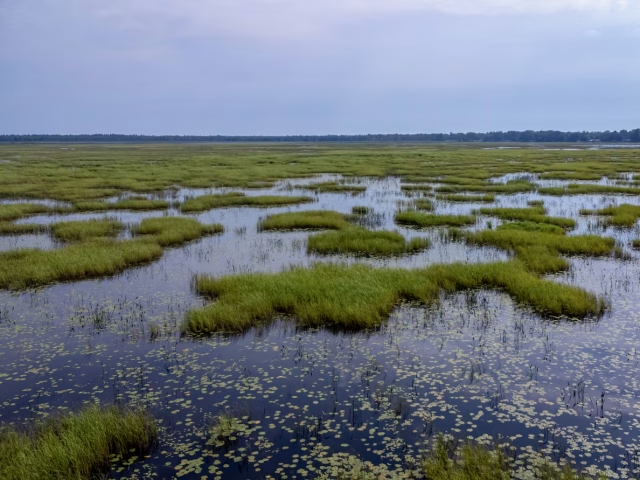Manoomin and the Future of Tawas Lake

Tawas Lake in East Tawas, Michigan, is home to the state’s largest bed of native wild rice, or manoomin, a culturally significant food for the Anishinaabe people and a keystone species supporting biodiversity. The shallow, 1,600-acre lake hosts more than 40 aquatic plant species, fish like bluegill and pike, and birds including bald eagles and state-threatened black terns.
While the flourishing rice creates excellent ecological benefits, it has sparked debate among lakeshore residents who sometimes view it as an obstacle to boating and fishing. In response, the Saginaw Chippewa Indian Tribe, scientists, and local residents are collaborating on a lake management plan focused on invasive species removal and public education. Instead of chemical treatments, the tribe uses specialized equipment to remove invasive Eurasian watermilfoil without harming wild rice.
Over the past several years, community events like “Tawas Lake Day” have shifted public perception, with growing appreciation for the rice’s ecological value and cultural importance. Tribal citizens will harvest the rice in September, and a wild rice camp will be held later that month in Mount Pleasant to teach traditional harvesting and processing practices.
Read the full article on MLive.
